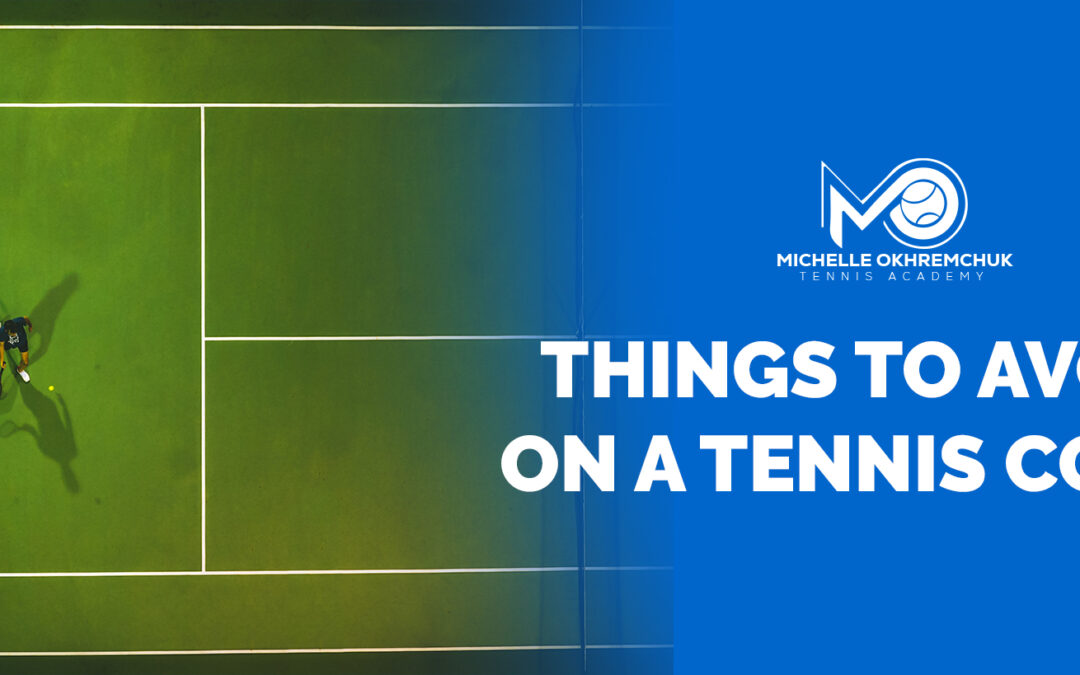Tennis is a thrilling sport that gets your heart racing! And we all enjoy being actively engaged in the game from start to finish.
This could mean smashing the racquet to the floor or, even more significantly, letting our emotions knock us off our game.
As you swing that racket and chase that ball, there are a few things you need to avoid to ensure your game is as exciting, fun, and friendly as can be!
Cheating or Breaking the Rules
Imagine a game where everyone played by their own rules – chaos, right? That’s why playing fair and respecting the rules is the golden ticket to an electrifying match in tennis. Cheating might seem tempting, but it ruins the experience for everyone.
A level playing field is the unspoken agreement that binds players together. And the electrifying energy of tennis thrives on this agreement.
Fairplay breathes life into competitive sports. Rules exist not to suffocate the game but to nurture its growth, create an equal ground, and ensure that victory is achieved through skill, strategy, and effort.
When you embrace fair play, you’re signing up for a game that’s exhilarating not just because of the scores but because of the unwavering trust in each player’s commitment to the sport’s values.
When players cheat, they’re not just gaining an unfair advantage; they’re betraying the very principles that make the sport interesting.
The sense of injustice from cheating spreads like wildfire and easily casts a shadow of doubt over the sport. Tennis is a game built on integrity, and when that foundation is shaken, the game loses its charm.
True champions respect the rules, honor their opponents, and elevate the game with their skill and sportsmanship.
By choosing fair play, you’re not just playing a match; you’re contributing to the legacy of tennis built on respect, camaraderie, and the unbreakable bond that transcends scores and victories.
Anyways, true victory comes from your skill and effort, not shortcuts.
Losing Focus or Giving Up
Beyond finesse, power, and strategy, tennis demands more than just physical prowess. You’ll quickly discover that the mental aspect is just as crucial as the physical.
Staying focused and giving your best effort throughout the match is your best bet to unlocking your true potential and achieving tennis greatness.
However, it requires balance, concentration, and a keen awareness of the present moment.
It’s easy to get caught in a downward spiral, letting negativity cloud your judgment and hamper your performance. But remember, maintaining mental composure, regardless of the score, is the mark of a true competitor.
Pushing through fatigue, overcoming doubt, and giving your all even when the odds seem against you can help you build a winning mentality and character that serves you the entire length of your career.
When your focus is sharp, your reactions are swift, your decisions are on point, and your shots are impeccable.
The journey might be tough, filled with highs and lows, but the growth you experience mentally and physically is immeasurable.
Damaging the Court or Equipment
The tennis court is a stage for your skills, and treating it with reverence is a sign of your respect for the game itself. Understanding and upholding this respect isn’t just a courtesy; it’s a mark of true sportsmanship.
Consider your racket, tennis balls, and gear your companions or teammates. Each stroke you make, each serve you send over the net, is made possible by the equipment that stands by your side.
Mishandling or abusing your equipment out of frustration is like mistreating a loyal friend who’s been with you through thick and thin.
Slamming your racket down in anger or tossing it aside carelessly means that you’re compromising the tool that helps you execute those breathtaking shots. Your equipment deserves the same respect you’d give to a teammate who supports you in your quest for victory.
Tennis is full of challenges. There will be moments when your emotions run high, and frustration threatens to overwhelm you. In those moments, how you treat the court and equipment is a reflection of your character and self-control.
Throwing your racket or mishandling your equipment in frustration might provide a momentary release, but it won’t lead to long-term success. In fact, it can hinder your progress by breaking your rhythm and focus.
Learn to manage your emotions, channel them constructively, and maintain your composure in the face of adversity. Tennis can give you lessons in resilience that carries over to all aspects of life.
Respecting the tennis court and equipment is an embodiment of sportsmanship and respect for the game, your opponents, and yourself.
Conclusion
It’s important to note that playing fair isn’t just a rule to follow; it’s a commitment to the game, and the mental side of tennis teaches us that triumph isn’t solely determined by physical prowess but by the ability to overcome obstacles, navigate challenges, and emerge stronger.
Finally, the respect we show for our gear echoes the respect we have for ourselves and our opponents.

